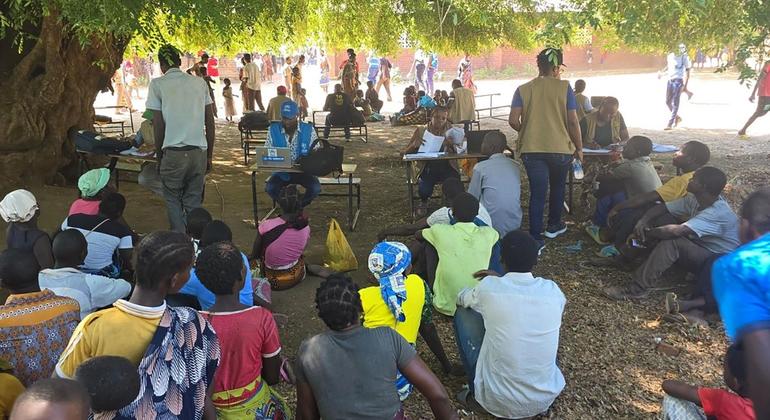Malawi is confronting a dire humanitarian situation as it struggles to provide adequate food for its population, compounded by the influx of thousands of refugees fleeing escalating violence in neighboring Mozambique. The crisis, triggered by post-election unrest, has placed immense pressure on the country’s already strained resources, deepening the challenges for both local citizens and displaced individuals.
The Impact of Refugee Influx
Malawi, a landlocked country in southeastern Africa, has long faced food security issues due to economic challenges, erratic weather patterns, and reliance on agricultural imports. However, the arrival of thousands of refugees fleeing the volatile situation in Mozambique has intensified the situation. According to reports, many of the refugees are escaping violent conflict in northern Mozambique, where political instability and armed group activities have made life untenable.
The refugee population has swelled significantly in recent months, overwhelming local resources, especially in refugee camps and host communities. With limited infrastructure and insufficient aid, refugees and local residents alike are finding it difficult to secure enough food, further exacerbating the food insecurity crisis.
Malawi’s Existing Food Insecurity Crisis
Even before the influx of refugees, Malawi’s food security situation was precarious. A substantial portion of the population already faced food shortages due to unpredictable agricultural yields and high levels of poverty. The country heavily relies on maize, a staple food crop, which has been affected by both droughts and floods in recent years. With limited diversification in agricultural production, Malawi has struggled to provide adequate food to its growing population.
International Aid and Local Efforts
In response to the twin challenges of feeding both locals and refugees, international humanitarian organizations, including the United Nations, have stepped in to provide food aid and support. However, resources remain stretched thin, and the assistance has often been insufficient to meet the growing demand.
Local authorities have also called for more robust support from the international community, urging both bilateral aid and long-term development strategies that can help Malawi build a more resilient food system. As the situation unfolds, efforts are focused not only on immediate food relief but also on addressing the root causes of food insecurity, including improving agricultural productivity, investing in infrastructure, and strengthening disaster preparedness.
The Humanitarian Response
Despite these efforts, the scope of the crisis is daunting. Malawi’s government, along with international partners, is working to ensure that refugees receive protection and access to basic services, including food. However, the sheer number of refugees has made it difficult to manage both the food security challenges and the need for shelter, healthcare, and education.
Malawi has also been forced to prioritize emergency measures, which have left long-term sustainability plans for the agricultural sector at risk. At the same time, the refugee crisis has strained Malawi’s limited resources, with donor funding often inadequate to address both immediate relief and long-term recovery.
Future Outlook
As Malawi navigates these converging crises, the outlook remains uncertain. The future of the country’s food security will depend on its ability to manage both the short-term needs of displaced people and the broader, ongoing challenges faced by its citizens. For this to happen, continued international assistance will be crucial, and so will the country’s ability to build a more resilient food system capable of withstanding the pressures of climate change and regional instability.
The situation is a stark reminder of the interconnectedness of conflict, migration, and food security in sub-Saharan Africa. With thousands of people caught in the crossfire of regional instability, Malawi’s struggle to provide enough food for its people and refugees will continue to demand global attention and intervention in the months ahead.



